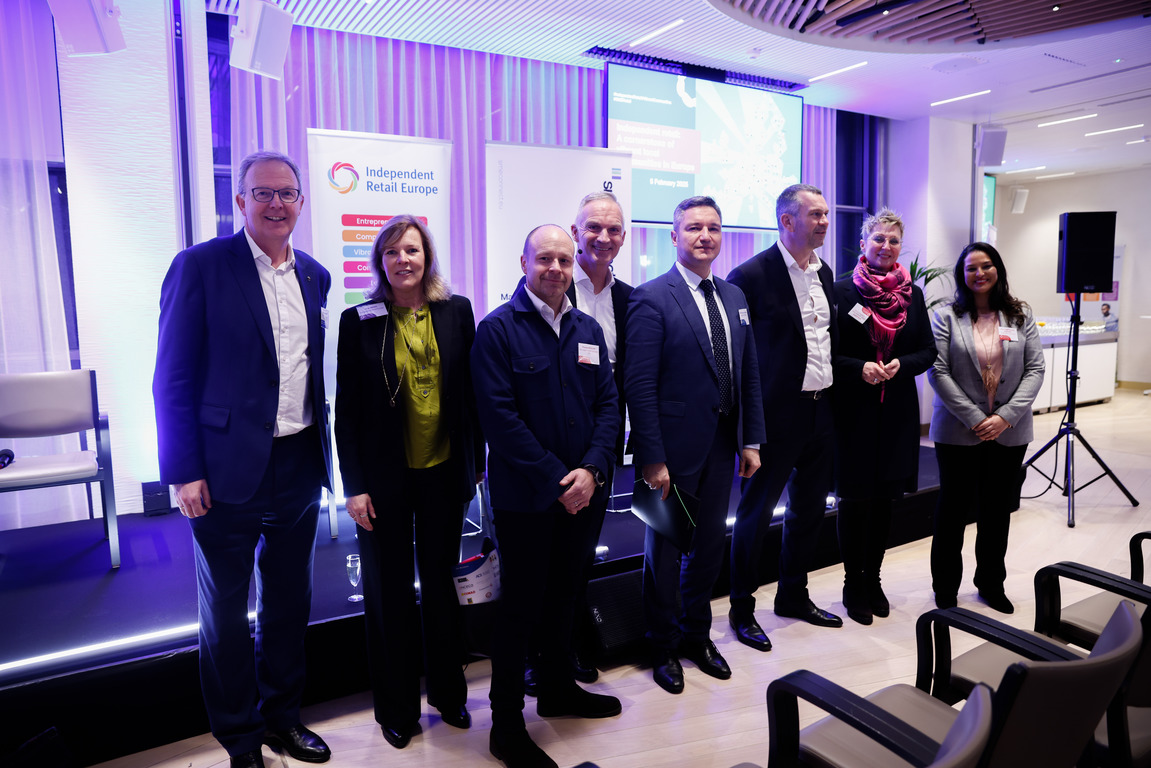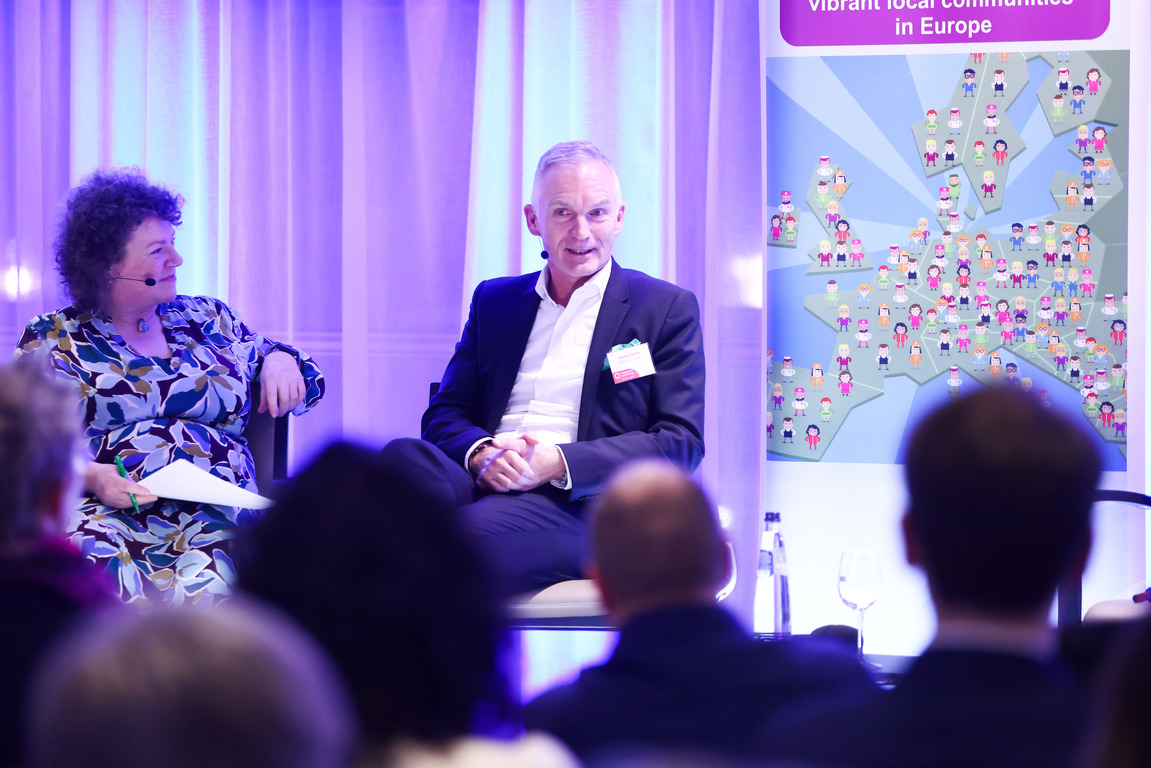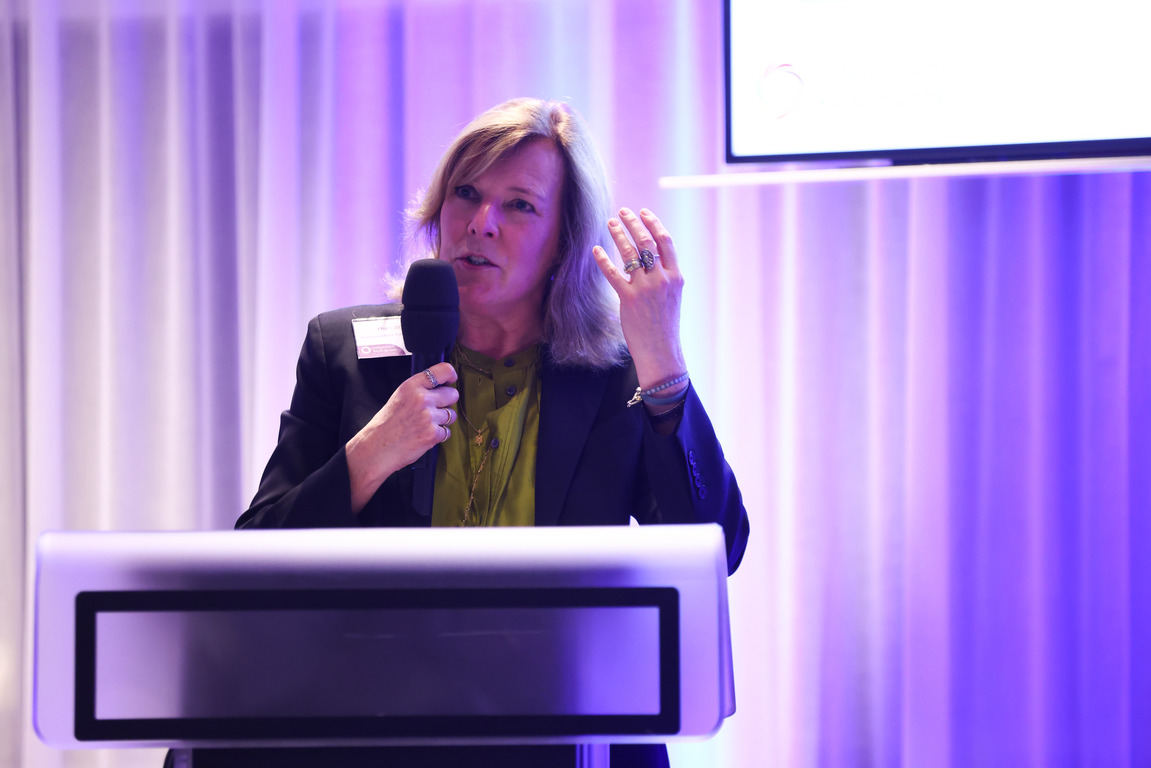Independent Retail: A cornerstone for vibrant local communities in Europe

On February 5, SME Connect was part of an event, organised in partnership with Independent Retail Europe titled „Independent Retail: A Cornerstone for Vibrant Local Communities in Europe” that took place in the European Parliament, in Brussels. The event was hosted by Jörgen Warborn MEP, President of SME Europe of the EPP, Co-chair of the EPP SME Circle, Member of INTA, ITRE, EMPL, JURI Committees.
This event brought together SME retailers, independent retail groups, and Members of the European Parliament to explore the unique advantages of the independent retail business model. We discussed how this model keeps SME retailers competitive, strengthens local economies, sustains jobs, and enhances consumer welfare. The conversation will also focus on the challenges these retailers face and how EU policymakers can better support them in the upcoming EU mandate.
The program opened with welcomes from MEPs Jörgen Warborn, Axel Voss, and Kristian Vigenin, providing insights into current efforts to enhance European competitiveness. The main focus was on the European Commission’s Omnibus proposal as a significant first step toward reducing regulatory complexity. There was a strong call for stakeholder input on essential regulatory elements and a push for collaboration to streamline reporting requirements. The speakers underscored the need to work closely with key figures to ensure a coherent implementation and encouraged ongoing feedback to better support businesses community.
The event continued with a fireside chat with Thomas Nonn, President of Independent Retail Europe. He emphasized the importance of a level playing field for independent retailers. He stressed that fair competition is essential, as independent retailers compete against integrated chains, online platforms, and non-EU companies. However, the increasing burden of regulations has made it increasingly difficult for independent retailers to focus on their core mission—meeting customer demands with quality products at fair prices. He highlighted the necessity of group membership for independent retailers, as navigating regulatory challenges alone is no longer viable. The cooperative model, which brings businesses together to strengthen their independence, remains essential for survival. Mr. Nonn reiterated that collective action is needed to ensure policymakers recognize the value of independent retail. To that end, organizations like Independent Retail Europe play a crucial role in uniting voices and advocating for the sector. He closed by reinforcing the importance of making this business model more widely understood and appreciated, referencing a short video designed to explain its significance.

During the panel debate, we had the opportunity to hear firsthand insights from retailers across Europe.
Thierry Cotillard, Retailer, Member & President of Groupement Mousquetaires from France, explained the advantages of this unique model where 3,000 independent retailers invest their own capital while collectively holding ownership through 1,700 associate members. This balance of independence and interdependence has fueled their expansion across France, Belgium, Poland, and Portugal. The strength of this model lies in three key advantages: pooling resources allows members to buy together and optimize logistics, giving them the freedom to focus on running and growing their stores; active involvement ensures that each member plays a role in decision-making, shaping strategies that directly impact performance; career growth is built into the system — Mr. Cotillard himself started as a supermarket employee at 15 and now owns five stores while leading the group. As the retail landscape shifts, independent models are gaining ground. Despite competition from giants like Carrefour, the growth of independent retailers proves that their model delivers what consumers want. For Mr. Cotillard, independent retail isn’t just surviving—it’s thriving. To sustain this momentum, the model must be recognized and supported by policymakers at local, national, and EU levels. He argued about how the balancing affordability with sustainability is a constant challenge for supermarkets. While customers seek low prices, retailers must also support healthier, sustainable food choices. The real crisis, however, lies with farmers. Across France and Europe, they are striking because they can’t make a living. Without farmers, there’s nothing to sell, making this an urgent issue for policymakers. Independent retailers, who buy directly, pay farmers fairly — they know them personally. The real problem lies with large manufacturers, where pricing lacks transparency. Farmers set prices, but in reality, they rarely see fair compensation. Meanwhile, major food corporations rake in double-digit profit margins, while supermarkets barely manage 1-3%. “This isn’t just a French issue —it’s a European crisis. Without immediate action, the future of farming is at risk. A fair, transparent system is crucial — one that ensures farmers are paid properly, and food supply chains remain sustainable.” – he said.
For Britta Goertz, independent shoe retailer from Germany, member of ANWR, being part of the group provides great support. By collaborating with hundreds of small retailers, they can leverage shared resources, particularly in digital innovation. Access to better data and advanced tools, which would be out of reach for a single retailer, gives them a competitive edge. Beyond technology, the group provides crucial legal support and handles routine tasks, freeing up time for what truly matters: serving customers. Personal connections, expert advice, and human interaction define their business, and streamlined processes make it easier to focus on these essentials. Britta argued how unregulated B2C imports from Asia pose a major challenge for independent retailers. While different business models are fine, fair and consistent rules must apply to all.
For Clara Medina Perdomo, Director of Grupo SPAR 2000 in Gran Canaria, Spain, independent retail is more than just business—it’s about community, culture, and sustainability. Grupo SPAR 2000 isn’t just a food chain; it’s the only one present in many municipalities across Gran Canaria, making it a vital part of local life. For Ms. Perdomo, success isn’t measured by store count or sales volume but by the impact on the local economy. SPAR 2000 actively supports farmers and growers, providing financial assistance for seeds and guaranteeing the purchase of their entire production — critical support in an island environment where agriculture is especially challenging. Beyond farmers, they work closely with small local producers, ensuring store assortments reflect the needs of each community. Culture is equally important. The group invests in neighborhood events, schools, and sports sponsorships, creating a strong sense of belonging. At the heart of it all is people — not just employees, but neighbors. With over 3,000 employees, SPAR 2000 fosters personal connections, knowing their workers and their families. Their new training academy reinforces the company’s commitment to growth, recognizing that investing in employees is investing in the community itself. For Ms. Perdomo, independent retail is the community — deeply embedded, responsive, and essential to its well-being. She argued about how independent retailers face a flood of new regulations, with an average of 3.4 new laws per day impacting the food sector— over 1,200 changes per year. Adapting is costly and challenging, especially for smaller businesses. In the Canary Islands, concerns extend to carbon taxes, which, while crucial for decarbonization, could significantly increase costs due to the region’s reliance on maritime trade. Higher expenses may also push businesses to relocate trade outside the EU, weakening European ports like Puerto de la Luz, once Spain’s most important. With Africa nearby and less stringent regulations, there’s a risk of shifting trade flows. The key challenge is balancing environmental protection with keeping European trade competitive — ensuring sustainability without undermining local economies.
For Thomas Widlund, Retailer of ICA Sjöstaden, Sweden, independent retail is about community, responsibility, and action. Even in the heart of Stockholm, he runs his store like a local shop, adapting daily to the neighborhood’s needs. While ICA provides central logistics, 25-30% of his shelves are stocked with local products — sourced through direct, personal agreements with small farmers and producers. His customers demand sustainability, so he delivers with organic and biodynamic selections tailored to them. As the only independent retailer in the area, every local sponsorship request from schools, football teams, art groups lands on his desk. While big chains back Olympic national teams, he supports the community teams that actually need it. But his role goes beyond business. “If there’s a problem in my neighbourhood, I fix it”- he says. His message to the policymakers is simple: an independent retailer isn’t just a store owner — it’s a leader, a problem-solver, and the backbone of the community. When local life thrives, so does the business. Mr. Widlund argued about his frustration with the reporting burden drowning independent retailers in paperwork. “Day after day, I fill out forms with data no one seems to read —time that could be spent supporting staff, schools, or local producers. Across 1,300 stores, this redundancy is multiplied.” – he said. On regulations, he acknowledges good intentions, but poor execution. New rules drive up costs, and that cost lands on consumers. Sweden — and Europe — don’t need higher food prices. Smarter policies, better implementation, and less bureaucracy are the way forward.
Horst Heitz, Chair of the Steering Committee of SME Connect, emphasized the need for strong representation for SMEs in Brussels, praising Independent Retail Europe for its role as a powerful voice. He criticized the lack of direct SME involvement in Brussels, noting that SMEs are often talked about but not consulted. Many lack the time, money, or resources to engage with policymakers, making strong advocacy crucial. Without presence, they risk being overlooked. The key to real influence is unity and strategy. SMEs must move beyond sector-specific issues and recognize their shared challenges. Unlike farmers who demand attention through protests, SMEs take a constructive, pragmatic approach—but must also be more vocal and better organized. Horst stressed that economic strength is essential for achieving broader goals like climate action. “Now is the moment for SMEs to seize the opportunity, organize effectively, and fight for a balanced, sustainable future.” – he said.

Else Groen, Director General of Independent Retail Europe, laid out four key priorities. Fair competition: SME retailers are overburdened with regulations compared to large chains, yet their business model isn’t considered in policy design. Group-level compliance should be allowed, and the outdated SME definition must be revised to reflect today’s economic realities. Sustainability must be practical: Retailers sit at the end of the supply chain and cannot control every aspect of production. Policies should focus on realistic implementation, not more legislation that adds unnecessary burdens. Digital fairness: Independent retail groups are unfairly classified as platforms under the Digital Services Act, while larger competitors escape the same obligations. This imbalance must be corrected to ensure fair competition. Strengthening the single market: Barriers like territorial supply constraints prevent retailers from fully benefiting from EU trade. The Better Regulation Agenda must involve more SME voices, not just large corporations. Her message was clear: policymakers must act to ensure independent retailers can compete, grow, and continue serving their communities.
.